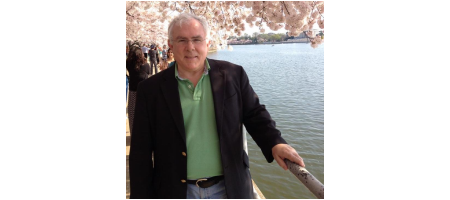I’ve been writing lately about my grief support group. I’ve been playing the role of “player-coach.” Having never been a part of a support group before, it has been an enlightening experience. I’m sure I’m not alone in the support group world of being both a participant and facilitating a group at the same time,
Every meeting is a “first” for me. I organize each session and lead it, but despite the preparation, I never know where each meeting will go. I actually lead a follow-on support group. I co-facilitated the original group that lasted for eight weeks. To our surprise, by the end of eight weeks, most attendees were in no mood to stop. They wanted to continue meeting, so the hospice arranged space for them to continue meeting. The bereavement coordinator asked me to lead that group. We began with 12 members. We’re down to ten now.
I think back to the first day of the original support group. We started with 22 participants. That first day was sad to witness. As expected, everyone who came that first day was in a various state of mourning. Most had lost a spouse within the previous six months. Most were women. There were four men.
At about the fourth week, the atmosphere of the group had changed. Most participants were sharing their experiences and feelings openly by then. They were doing this because it became clear they were sailing in a sea of empathy. Everyone was in the same boat. The relief they collectively felt was palpable, as they could cry and not feel lost in their grief. It became clear why these meetings were called “support groups.” No one felt alone anymore. Attendance at each meeting was high. In the last half of our eight sessions, there was a bit of levity in the group. Laughter was not unusual. Friendships were being formed. A tribe was coming together—a healing grief community.
We did not skip even a week starting up the continuation group. We met at a new location, a church, that was perfect for us. Again, attendance was high. Missing a meeting for some was unavoidable on occasion. And when that happened, they knew they were missed by the others. Our continuation group agreed to meet in six-week increments and agreed to determine at the end whether to continue for an additional six weeks. We are now halfway through the second session. We have a topic to discuss at every meeting, which often gravitates into multiple topics. Everyone openly participates. We are among friends. There is a lot of laughter now. One 84-year-old widower member told us yesterday that he believes he has turned the corner. He is active again in his church and a non-profit organization he worked with before his late wife’s illness. He has purchased a new wardrobe; he is also a part of yet another support group and has made friends there as well. The ladies in our group have been coaching him on cooking using a crock pot and an air fryer. He is proud of his culinary accomplishments,
The lesson I have taken away from this is the healing power of a grieving community. I do minimal leading during these meetings as each meeting takes on a life of its’ own. Everyone shares. The atmosphere is as light as can be expected, but without exception, every member of this group is amazed at how helpful it has been for them to be a part of this community. My only question now is: How much longer will they want to meet? We have three more meetings before we have to decide.
I have benefitted tremendously from this group and my grief counselor, whom I have been seeing at least every two weeks. I can’t emphasize strongly enough the benefit of both. Regardless of where you are in your grief journey, you will heal better and faster if you find a good support group and grief counselor. I am especially pleased to report that two members have already joined our hospice to serve as bereavement volunteers.
__________________________
Michael Burroughs is the author of Moving Mountains: Facing Strokes with Faith and Hope. He is retired and living in St Louis, Missouri.


Leave a comment